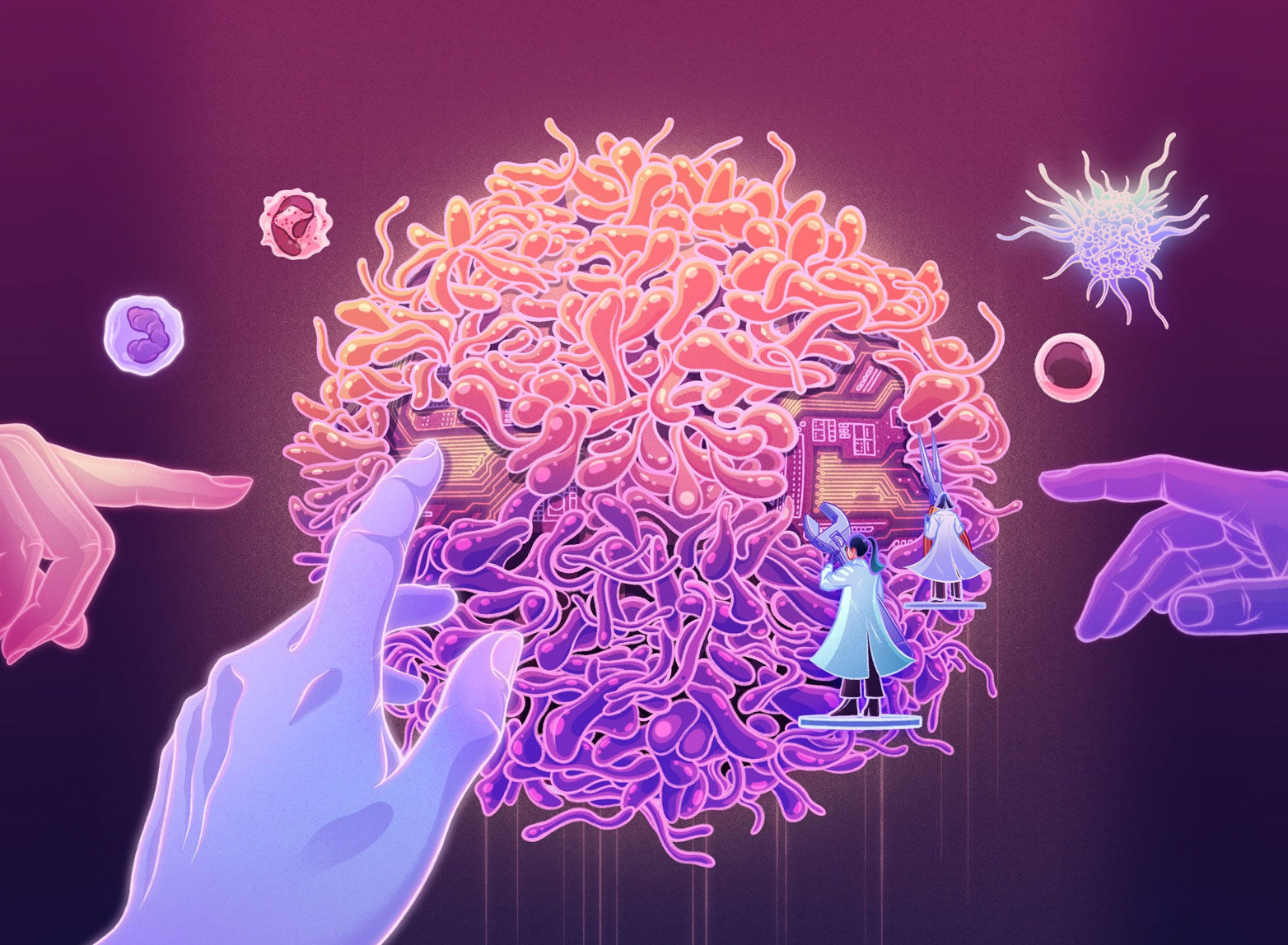
The field of biology has seen significant advancements in recent years, particularly in the areas of genomics and gene editing. One of the most important breakthroughs in this field is the development of CRISPR gene-editing technology. CRISPR has the potential to revolutionize experimental therapies for genetic disorders such as sickle cell disease and blindness. However, there are also ethical concerns surrounding the use of this technology. Despite these concerns, the continued advancements in genomics and gene editing offer exciting possibilities for the future of medicine and biotechnology.
Neuroscience is another area of biology that has seen emerging discoveries in recent years. Scientists have made significant progress in understanding the anatomy and function of the brain, which has led to new insights into neurological disorders. For example, researchers have discovered anatomical changes in the brains of individuals who have regained their sight after being blind. Additionally, important discoveries related to how neurons communicate with one another have been made. These breakthroughs offer promising opportunities for the development of new treatments for neurological disorders.
Innovative approaches to understanding diseases have also been a focus of recent biological research. Microgravity research, for example, has provided new insights into diseases such as cancer and osteoporosis. Additionally, synthetic biology has led to the development of new tools for diagnosing and treating diseases. As scientists continue to explore the natural world and make new discoveries, the potential for new treatments and cures for diseases becomes increasingly promising.
The latest discoveries in physics
The field of physics has seen remarkable progress in recent years, particularly in the areas of quantum computing and communication. The 2019 IEEE Quantum Meeting in Gaithersburg showcased the latest advancements in quantum technologies, including the development of more powerful quantum computers and the use of quantum communication to transmit information securely. In addition, theoretical developments in quantum computing have led to breakthroughs in areas such as cryptography and machine learning. These advancements in quantum technologies have the potential to revolutionize the way we approach computing and information processing in the future.
Another area of physics that has seen significant exploration in recent years is dark matter and dark energy. Physicists have long been fascinated by the mysterious substances that make up the majority of the universe’s mass and energy, despite being invisible to us. The study of dark matter and dark energy has led to new insights into the structure and evolution of the universe, as well as the development of new technologies for detecting these elusive substances. Theoretical developments in the nature of the universe have also contributed to our understanding of the fundamental laws of physics and the nature of reality.
The latest discoveries in physics have opened up exciting new avenues for scientific exploration and technological innovation. From the exploration of dark matter and dark energy to the theoretical developments in quantum computing and communication, the field of physics continues to push the boundaries of our understanding of the universe and our place within it. As we continue to make new discoveries and breakthroughs, the possibilities for scientific advancement and discovery are truly endless.
The latest discoveries in chemistry
Chemistry continues to be an exciting field of science with new discoveries and breakthroughs being made every year. One area of focus is the development of new materials and chemical compounds. In 2020, the “Top Ten Emerging Technologies in Chemistry” identified innovations with tremendous potential to change the current landscape. These developments have led to the creation of new materials with unique properties such as self-healing and shape-shifting capabilities. These materials could have a wide range of applications, from biomedical implants to self-repairing infrastructure. The possibilities are endless, and the future of materials science is promising.
Another area of focus in chemistry is sustainable energy and environmental protection. Scientists are exploring renewable sources of energy such as solar, wind, and nuclear power. In 2022, researchers produced more energy from fusion than was used to drive it, promising further discovery in clean power. In addition to energy, chemistry is also playing a vital role in environmental protection. For example, scientists have discovered a new route in bacteria to decarbonize industry, which could reduce greenhouse gas emissions from the manufacturing of fuels. These advancements in sustainable energy and environmental protection have the potential to significantly impact our world and pave the way for a cleaner, greener future.
Finally, chemistry is also exploring the intricacies of chemical reactions and processes. In 2022, a breakthrough in synthetic biology led to the development of a new technique for exploring cells and tracking biological processes. Additionally, microgravity research has provided new insights into the study of diseases such as Alzheimer’s. The exploration of chemical reactions and processes is essential in understanding the fundamental building blocks of our world and has the potential to lead to groundbreaking discoveries in medicine, materials science, and beyond. As we continue to delve deeper into the fascinating world of chemistry, we can expect even more exciting discoveries and breakthroughs to come.
The latest discoveries in technology
Advancements in robotics and artificial intelligence have revolutionized the way we interact with technology. Robots are now an integral part of our daily lives, from automated manufacturing processes to personal assistants like Siri and Alexa. With the increase in computational power and advances in artificial intelligence, there is a growing interest in developing more sophisticated robots that can perform complex tasks with greater efficiency and accuracy. These technologies are also being used to create computer models of human intelligence and artistic expression, which were once considered uniquely human. The latest discoveries in robotics and artificial intelligence are changing the way we live and work, and the possibilities for future innovation are endless.
Emerging technologies in virtual and augmented reality are also transforming the way we experience the world around us. Augmented reality is a more recent technology than virtual reality and shows an enormous potential for use in scientific scenarios. The metaverse, which uses extended, augmented, and virtual reality technologies, has the potential to extend the physical world and create new opportunities for designers and developers. Researchers are exploring the use of these technologies in various fields, including education, healthcare, and entertainment. These innovations are opening up new possibilities for immersive experiences and changing the way we interact with digital environments.
Innovative approaches to data science and analysis are also driving new discoveries and breakthroughs in science and industry. Data science has the potential for disruptive innovation in various fields, including science, industry, policy, and people’s lives. The James Webb Space Telescope (JWST), which was launched in December 2021, is expected to revolutionize our understanding of the universe by providing unprecedented images and data. Breakthroughs in synthetic biology and sustainable energy are also shaping the future of science and technology. Artificial intelligence can also act as a source of inspiration for new concepts and ideas that can lead to scientific understanding. These latest discoveries and breakthroughs in science are shaping the world we live in and paving the way for future innovation.







